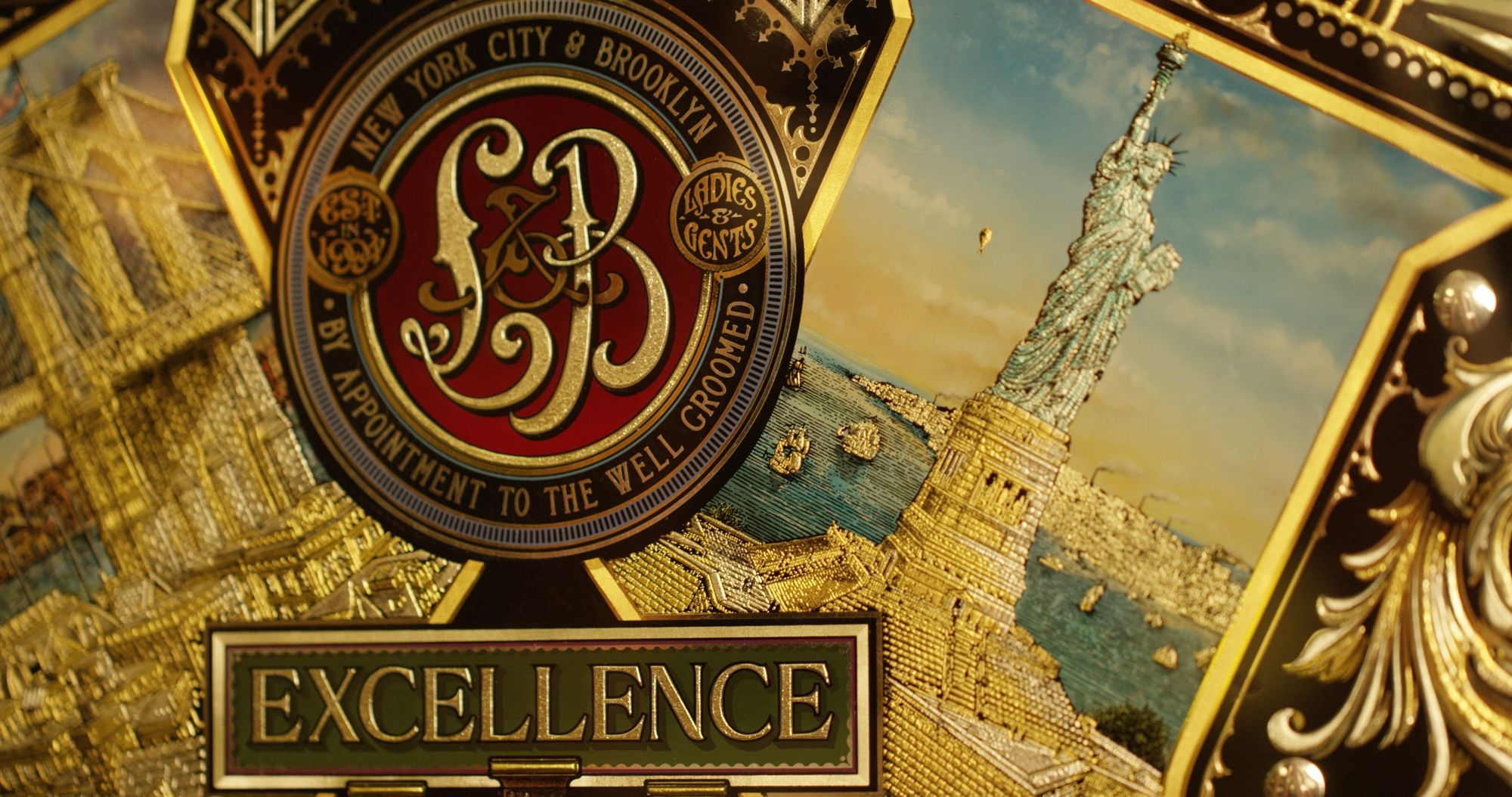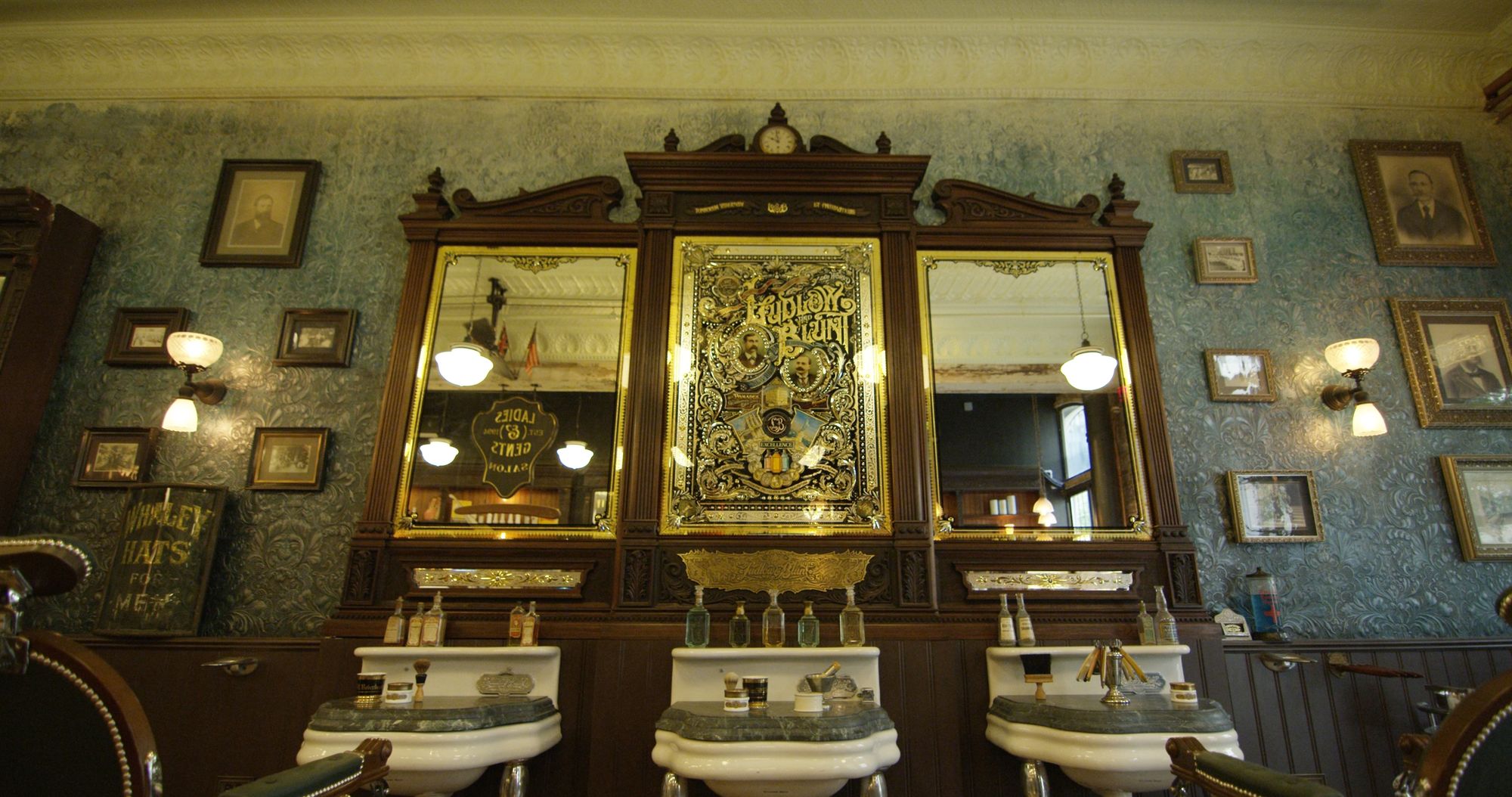Craft & Creativity: The Making of Ludlow and Blunt
David A. Smith and Danny Cooke on 'The Making of Ludlow and Blunt', an incredible artwork and film.

There can't be many sign painting commissions that take five years to complete, but that's exactly what happened with David A. Smith's recent work for New York barbers Ludlow and Blunt. The result is an elaborate piece of reverse glass work set between two mirrors in a bespoke carved frame—it will no doubt be a frequent conversation starter with customers sitting down for a beard trim or single grade buzz.
